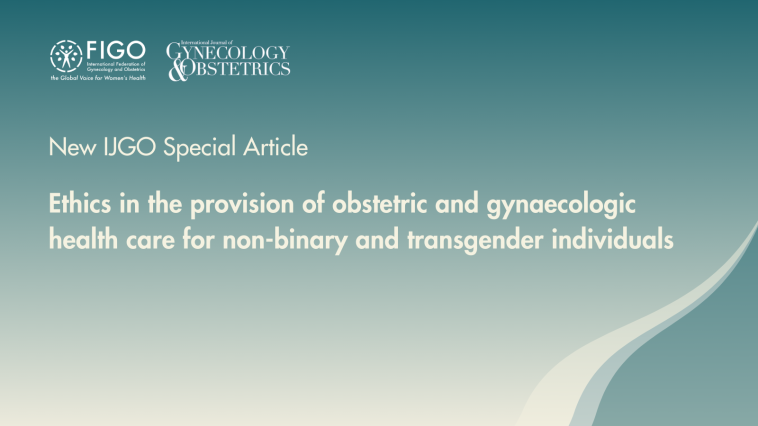Ethics in obstetric and gynaecologic care for transgender and non-binary individuals

The International Journal of Gynecology & Obstetrics (IJGO) has published a special article by the FIGO Committee on Ethical Aspects of Human Reproduction and Women’s Health titled "Ethics in the provision of obstetric and gynecologic health care for non-binary and transgender individuals”
Transgender and gender-diverse (TGD) individuals face significant barriers in health care, particularly in obstetrics and gynaecology. Despite an increasing demand for gender-affirming care, many TGD patients experience discrimination, lack of access and inadequate care due to the biases and knowledge gaps among healthcare providers. To address these disparities, FIGO emphasises the need for inclusive, respectful and competent care for TGD individuals.
Gynaecologists and healthcare providers play a vital role in supporting the health, safety and well-being of TGD patients, especially as many of them rely on OBGYNs for primary care, routine screenings, and reproductive health support. However, the specific needs of TGD patients, such as hormone therapy, gender-affirming surgeries and fertility counselling, require a sensitive and ethical approach rooted in patient autonomy, beneficence and justice.
Training healthcare professionals on appropriate terminology, culturally sensitive care and ethical decision-making is essential for improving the healthcare experience for TGD individuals. By creating welcoming, inclusive practices, OBGYNs can help mitigate the stigma and discrimination that TGD individuals face while promoting their physical and mental well-being.
FIGO calls for a commitment to ethical, affirming care that addresses the unique healthcare needs of transgender and non-binary individuals, ensuring equitable access to vital services like contraception, fertility preservation, and hormone therapy. By following ethical principles and embracing inclusive care, healthcare professionals can better serve this underserved population and promote physical health, well-being, and self-fulfillment for all patients.
For more details, read the full special article in IJGO.